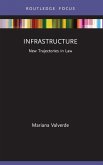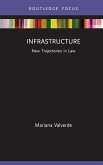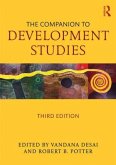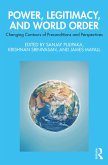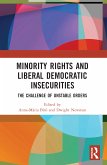Criticism that the development sector has not delivered in terms of eliminating extreme poverty, fast-tracking growth and preventing conflict, is neither new nor surprising. In fact, it may be the one thing that scholars, donors and practitioners agree on. While many of these concerns are valid, this book makes a case that the sector is closer to unlocking the gates to more effective and efficient development outcomes than is popularly believed. Specifically, it argues that by overturning a few myths, making better use of evidence and employing some different rules, practitioners, policy specialists and donors can foster the changes in the development architecture that are needed to reach the 10 percent of the world's population still living in extreme poverty.
Engaging, provocative and clear sighted, the book provides insight into interventions around democratic governance, refugee response, counterterrorism, gender mainstreaming, environmental protection and private sector engagement. It is instructive reading for professionals across the development sector, think tanks and NGOs.
Engaging, provocative and clear sighted, the book provides insight into interventions around democratic governance, refugee response, counterterrorism, gender mainstreaming, environmental protection and private sector engagement. It is instructive reading for professionals across the development sector, think tanks and NGOs.
"Carefully written and lucidly presented, Harper takes readers on a deep dive into the geopolitics of aid provision, making an irrefutable case for why everyone has a stake in human development outcomes."
Helen Clark, Administrator of the United Nations Development Programme (2009-2017)
"A pathbreaking examination of how political economy in aid provision is obstructing progress towards a safer, more equal and socially-cohesive world. Strongly recommended for practitioners, donors and policy makers alike."
Ertharin Cousin, Executive Director of the United Nations World Food Programme (2012-2017)
"A major contribution to the scholarship on development effectiveness. Harper takes the frustration held by many and packages it in a solution-oriented account of how development cooperation can be transformed and strengthened in a pragmatic way but always keeping a people centered approach where their rights are respected, protected and promoted."
Najat Maalla M'jid, Special Representative of the Secretary-General on Violence against Children
"In this highly readable exploration of development processes, Harper sets out a constructive argument for how better outcomes can be achieved by understanding the political economy of aid flows, making better use evidence and fostering innovation."
Gillian Triggs, UN Assistant Secretary-General and Assistant High Commissioner for Protection with UNHCR
Helen Clark, Administrator of the United Nations Development Programme (2009-2017)
"A pathbreaking examination of how political economy in aid provision is obstructing progress towards a safer, more equal and socially-cohesive world. Strongly recommended for practitioners, donors and policy makers alike."
Ertharin Cousin, Executive Director of the United Nations World Food Programme (2012-2017)
"A major contribution to the scholarship on development effectiveness. Harper takes the frustration held by many and packages it in a solution-oriented account of how development cooperation can be transformed and strengthened in a pragmatic way but always keeping a people centered approach where their rights are respected, protected and promoted."
Najat Maalla M'jid, Special Representative of the Secretary-General on Violence against Children
"In this highly readable exploration of development processes, Harper sets out a constructive argument for how better outcomes can be achieved by understanding the political economy of aid flows, making better use evidence and fostering innovation."
Gillian Triggs, UN Assistant Secretary-General and Assistant High Commissioner for Protection with UNHCR



